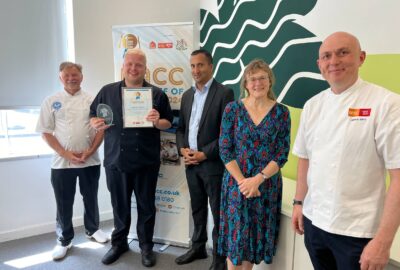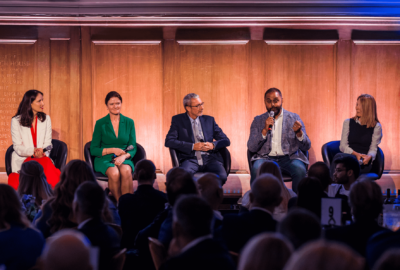With over 25 years of experience in hospitality operations and technology, Chris Fletcher is the Founder & CEO of Tech On Toast, a company that simplifies the way hospitality technology is bought and managed. Working with a broad range of different technology, he is well versed in the array of choice available to operators, and the solutions best suited to their unique business environment.
What tasks can HR tech assist with?
HR technology can automate and simplify mundane but compliant tasks that need to happen in your business every day. Tech can now support the entire employee journey, from applicant tracking to exit interviews; it can manage payroll, performance management, and even advance wages in a manner that supports the employees who need early access to their pay. There have also been huge leaps in supporting shift scheduling, enabling the employee to have autonomy over their working week, and further supporting their wellbeing.
What tech solutions should a smaller operator be looking at to help them with their HR practices?
The best thing about the development of technology is that now smaller operators can access enterprise level technology for a reasonable monthly fee. For example, automation in payroll technology has enabled smaller operators to manage what can be a very complex HR function. Tasks like calculating holiday pay, maternity, bonuses, and wage advances can all be managed through one tech solution, which will integrate into your existing scheduling tool too.
Have there been any new innovations in HR tech that hospitality operators should know about?
Obviously, AI has been and will be influential in helping drive innovation. Bots play the role of a human, answering standard employee questions like: “When is my next appraisal?” and “How many holidays do I have?” which will save time and provide consistency.
However, there is a very interesting movement around joining the dots on all the different forms of HR tech that make up a HR tech stack. There is a company called Youda that automates all of the mundane, repeatable tasks involved in onboarding, appraisals, scheduling, feedback, and T&A, for example, and then, in turn, helps you gain insight into the people journey. This truly sets benchmarks on why employees behave the way they do, which will in turn improve the employment experience. Its all very exciting.
What should operators look for when investigating HR tech solutions?
It’s such a big commitment to invest in HR technology as it will affect all of your employees, so getting it right is crucial. The first thing I would say is to make sure you are actually fixing the problem you set out to solve. Start with the end in mind. Then ask yourself “Can the tech provide a user-friendly interface for your team, or is it going to cause confusion?” Next, make sure your technology can scale with your business, and finally, make sure you have metrics in place to measure return on investment.
Is there any evidence of HR software improving the employee experience?
I think the fact that this generation didn’t know life before the iPhone shows that it’s not only an advantage to have seamless, intuitive tech at their disposal, but it’s absolutely necessary if you want to be an employer of choice.
You’ll find that attrition in the first 90 days of an employee’s employment accounts for 15-20% of a site’s total labour costs. Hospitality businesses can save between 6-8% on their labour costs by moving to a workforce management solution, and they can see up to 25% savings by maximising productivity
across the entire HR function.



